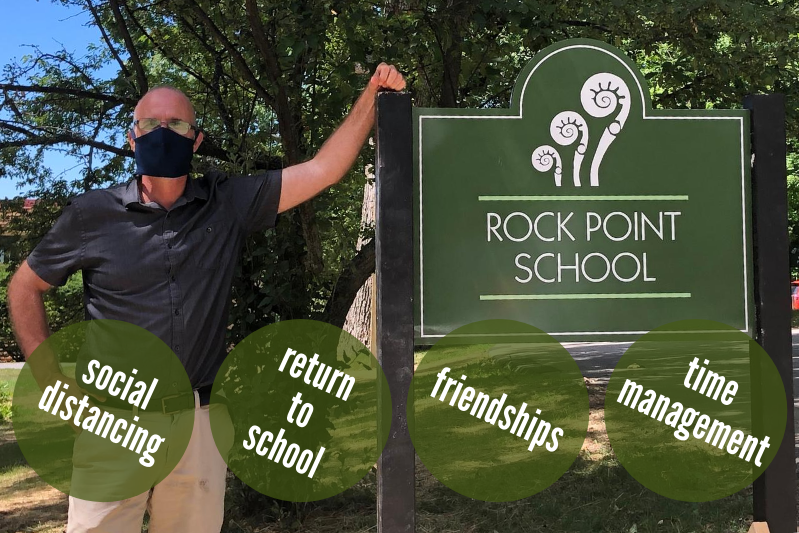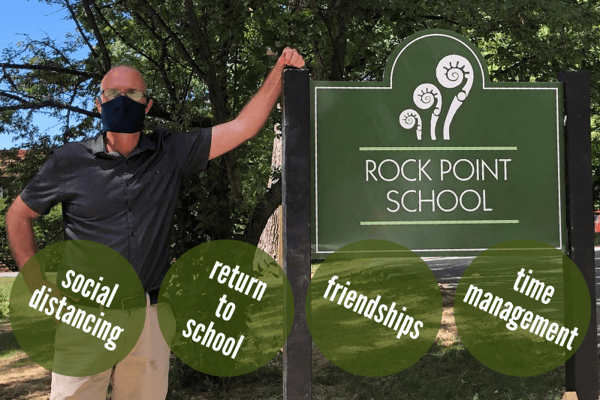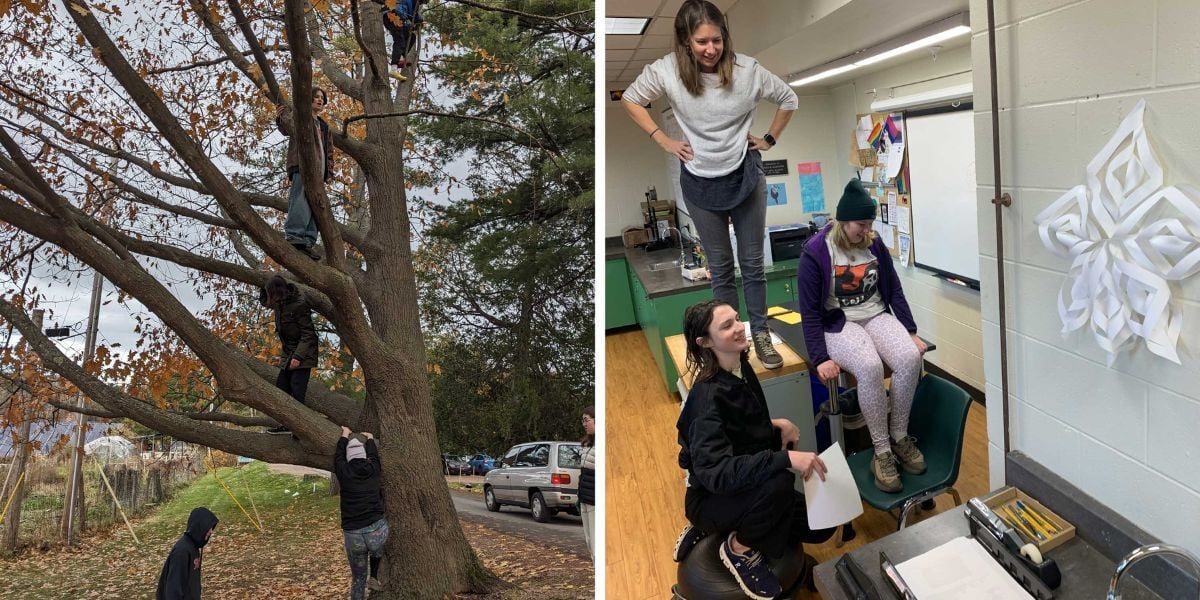How Friction Fosters Connection and Builds Community
In an age where “frictionless” conveniences like instant deliveries and AI interactions promise to make life smoother and easier, a lesser-known cost...


Every “back-to-school” season, teens experience anxiety around schoolwork, schedules, friendships, and activities. They must negotiate new teachers, try-out for activities, and navigate new social situations. This year some teens have been doing online school, while others were in and out of in-person school due to COVID-19. For many teens (and their parents and some school staff), the transition back to full-time in-person school feels daunting.
While school looks different in every district, it is undoubtedly true that school will not be the same this fall. For many teens and their families, the uncertainty of what to expect can be daunting. We have weathered a year of COVID shutdowns, testing, and finally vaccinations, but despite our best efforts, in many places around the country things are still uncertain.
At Rock Point, we know that coming to in-person school has many benefits for our students and their parents, and we have planned comprehensively to make that transition as safe and smooth as possible this fall. After making it through last year with no positive COVID cases on campus and vaccinating all staff and students, we feel like our mitigation efforts are effective.
While the stressors may be different this fall, the fundamentals of helping a teen cope with back-to-school anxiety remain the same.
If your teenager has a diagnosis of ADD/ADHD, Executive Function Disorder, Autism Spectrum Disorder, or Anxiety Disorder, you may already know that they will need extra support around transitions. Even if they don’t have a clinical diagnosis, your teen may find it challenging to transition back to school after a long break. Here are some signs to look for:
Talking with your teen to help them (and you) identify how they are feeling and why is the first step to helping them move forward. If your teen is acting out, it can be frustrating and challenging to remember that they might be struggling, but having a conversation in a quiet moment might reveal the reason for their behavior.
Start the conversation with an observation and then ask a question, like, “I noticed that you don’t seem to want to talk about going back to school. Is there a reason?” Try not to ask leading questions like, “Are you anxious about wearing a mask all day?” Your teenager might be tempted to answer yes, even if that isn’t the problem, or they might start to wonder if they should be worried about wearing a mask!
If your teen does identify some reasons that they are feeling anxious, try not to dismiss their concerns. Even if the fears seem unrealistic, for your teenager, they may seem very real. For example, if your teenager expresses a concern that they will fall behind because of a busy schedule, you may want to say, “I know you can do it!” which feels like an encouraging statement. This may make them feel worse because they genuinely believe they can't do it. Instead, try to get more information by helping them go over the syllabus and schedule. Then help them take the next step to make a plan for getting the assignments completed or find out if there is time available when they could get extra help from the teacher. Psychology Today also has some suggestions on stress management strategies and ways to frame conversations with your teenager to build stress resilience.
While you don’t want to amplify the anxiety, the message you want to send is, “I know you’re worried, and that’s okay. I’m here to help you through this.”
Chances are, your teenager has recently seen you dealing with stress in your own life. Reflect on how you deal with your anxiety. Do you get short-tempered? Do you overeat? Do you go for a run to blow off steam? Have a conversation with your teen about your own experiences with stress and anxiety and develop strategies for both of you to create healthier habits.
For example, if sleeping is an issue for your teen when they are stressed, perhaps identify some things they can do to make going to bed more manageable, like putting away their phone/iPad/computer an hour or so before an optimal bedtime. If you agree to put your phone away too, it will be a lot easier to convince them to do it!
Another healthy habit to try as a family may be mindfulness or meditation. At Rock Point School, we offer a yoga and mindfulness class first thing in the morning as a way for students to get focused and centered for the day. Some students find mindfulness exercises can help calm their minds before bed too. Here is another resource for some mindfulness activities to try.
Ensuring you are eating healthy foods, getting sleep, and exercising will help reduce your stress and encourage your teen to do the same. The earlier you can set up these habits, the more comfortable they will be to maintain through the school year.
If your teen is unable to move through their anxiety around returning to school, it may be time to seek help from a doctor, guidance counselor, or therapist. Many teens need extra support to build their coping skills as they move into adulthood. Sometimes, getting an outside perspective can help move everyone forward.
Current Affairs: Teens and Anxiety
Research study on the emotional impact of COVID-19 on young girls, Rox Institute for Research & Training
A Transition Checklist to Reduce Teen Back-to-School Anxiety [PDF]
A convenient checklist of ways to help your teen through a back-to-school transition period
* This article was updated Aug. 2021 to reflect current events

In an age where “frictionless” conveniences like instant deliveries and AI interactions promise to make life smoother and easier, a lesser-known cost...

As we are heading into our vacation, I am thinking about a student at Rock Point from many years ago who really struggled to get back into the school...

Every quarter, students choose from several electives, which meet three times a week to supplement the curriculum and provide a fun way to start...